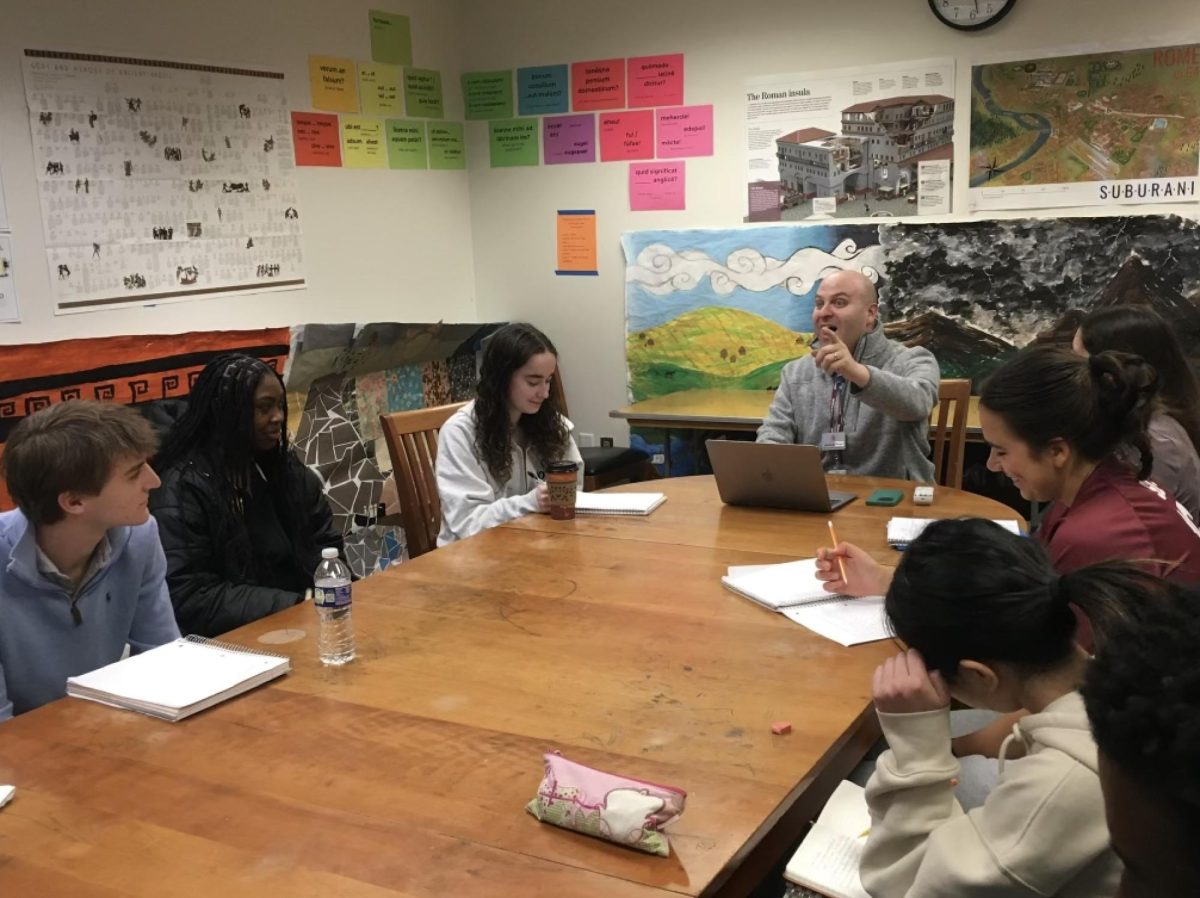According to the Sidwell Friends website, the school’s curriculum allows students to “engage their innate curiosity, elicit creativity, and expand intellectual capacity.” Choice in course selection is a key pillar of these goals. As Sidwell students progress through the Upper School, they are given more opportunities to select specific courses that interest them most based on their skills, passions and interests. Aligning with the Quaker value of equality, students are placed into classes solely based on the students’ preferences and schedules. Teacher preference in course selection would foster a competitive environment based on winning a particular teacher’s favor instead of focusing on learning and growing individually.
In students’ junior and senior years, when college applications, grades and teacher recommendations are paramount, course selection should emphasize academic curiosity over academic competition. If students could select courses based on who taught them, many would ignore the course’s content. This would be especially true in classes where students are offered a wide array of options, such as regional history or science electives. The goal of these specific classes, especially ones taken as upperclassmen, is to foster a classroom of students who are genuinely stimulated by the course material and interested in learning the subject matter. Teacher preference would lead students to request a class with a teacher they believe might give them a better grade or a lesser course load instead of requesting a class that most interests them.
In addition, although it can be challenging to have a teacher with whom one does not connect, uncomfortable situations foster growth and creativity. If students can always choose the “easiest” teacher or one they already know well, they will never have the critical and formative experience of learning how to approach challenging relationships with superiors.
Additionally, students who have deeper connections to the school — whether through years of attendance or having siblings enrolled — may find it easier to select their preferred teachers. These advantages might lead to grade disparities between Sidwell students who are very familiar with the school and its educators and those who are newcomers.
The prospect of teacher preference also leaves critical questions unanswered. For example, if students were allowed teacher preference for course requirements in science or math, they might decide whether or not to take an advanced course based on who would teach it.
Although students should have a say in course selection, teacher preference would only fill this process with competitive undercurrents entrenched in favoritism. Teacher preference can still have advantages, especially for upperclassmen, but a system where students can see who will teach each course should only be implemented with clear, unbiased guidelines. Unless the Sidwell Friends administration can find a way to integrate students’ opinions while keeping course selection fair, it will only create more problems.
High school is meant to be when one explores new things, makes mistakes and grows from them. As Sidwell Friends stated in the 2021 Let Your Light Shine issue, “Sometimes students fail. And that’s okay.” Students will have years in the future to hone in on specific subjects and areas of expertise with professors and mentors that they connect with. High school should continue to be a time where they try new things based on their interest, not the teacher.











































